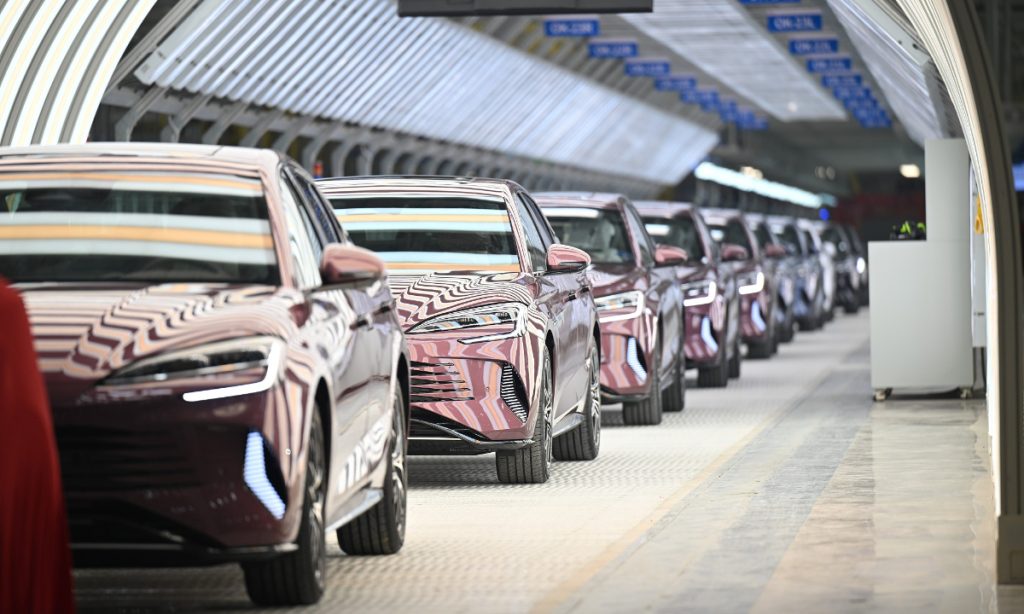Call to block Chinese EVs made in Mexico threatens US industry development, market fairness

Chinese observers on Sunday said that calls by a US manufacturing advocacy group - Alliance for American Manufacturing (AAM) - for the US to block imports of Chinese vehicles and parts from Mexico are intended to have a chilling effect, which will prevent US consumers from benefiting from affordable and high-quality products and are contrary to its principles of the market economy.
The call came as Chinese electric vehicle (EV) maker BYD plans to establish a factory in Mexico targeting the US market, Reuters reported.
If the US does impose such a ban, it would raise concerns of targeting Chinese businesses, which is contrary to the principle of the market economy and the non-intervention principle that the US champions, Gao Lingyun, an expert at the Chinese Academy of Social Sciences who closely follows China-US trade issues, told the Global Times on Sunday
Gao said that such protectionist measures would not address the underlying issues of competitiveness in the US auto industry, which stem from innovation, markets and shortages of talent.
The AAM report argues that the US should not allow vehicles and parts made in Mexico by companies based in China benefit from a North American free trade agreement. Vehicles and parts produced in Mexico can qualify for preferential treatment under the US-Mexico-Canada trade agreement as well as qualifying for a $7,500 EV tax credit.
Zhou Mi, a senior research fellow at the Chinese Academy of International Trade and Economic Cooperation, highlighted the attractiveness of Mexico for investment and cooperation with China, particularly in the EV sector, thanks to its significant position in the global market, as well as its manufacturing base and openness to foreign investment.
Zhou underscored the potential for the strong development of Mexico's EV industry, represented by existing investment inflows from Chinese companies.
In response to the AAM report, the Chinese Embassy in Washington defended the nation's automotive exports as a reflection of the Chinese manufacturing industry's high-quality development and strong innovation. The embassy argued that the leapfrog development of China's auto industry has provided cost-effective products with high quality to the world, according to the Reuters report.
In the fourth quarter of 2023, BYD outpaced Tesla to become the world's largest EV seller. Facing challenges posed by China's fast-growing EV industry, the Biden administration issued rules in December to cut subsidies for EVs, batteries and parts that contain sourcing materials from China, aiming to wean the US EV supply chain away from China.
In contrast to the challenges faced in the US, Chinese EVs are making new breakthroughs in the European market. The first batch of BYD ATTO 3 vehicles was delivered to Hungarian customers, witnessed by Hungarian Foreign Minister Peter Szijjarto and BYD Chairman Wang Chuanfu, according to BYD's official WeChat account on Saturday.
With increased market competition brought by Chinese EVs, better products and prices could be developed for European consumers. The entry of Chinese EVs is also expected to have a positive effect on the entire supply chain, bringing new technologies and fostering innovation, aiding Europe's transition to EVs, Zhou told the Global Times on Sunday
If the US government intervenes to block Chinese EVs from entering the market, it would deprive consumers of the benefits brought by technological advances and hinder the Biden administration's efforts to combat climate change, Zhou argued.
BYD has established three stores in Budapest, the capital of Hungary, and plans to continue expanding its sales and service network, expecting to double its stores in the country this year.